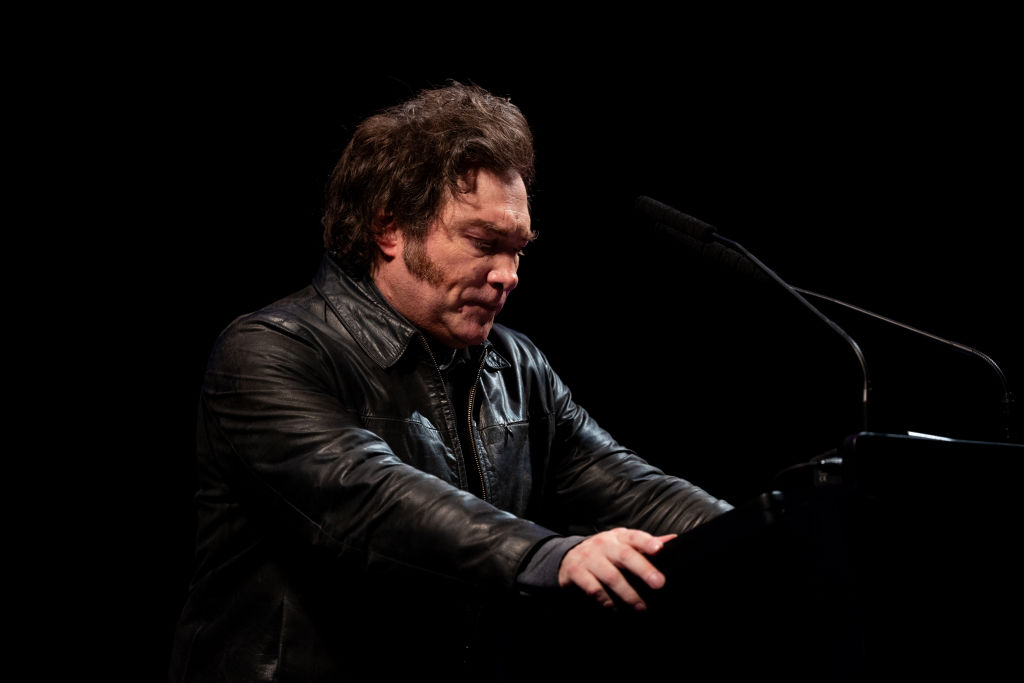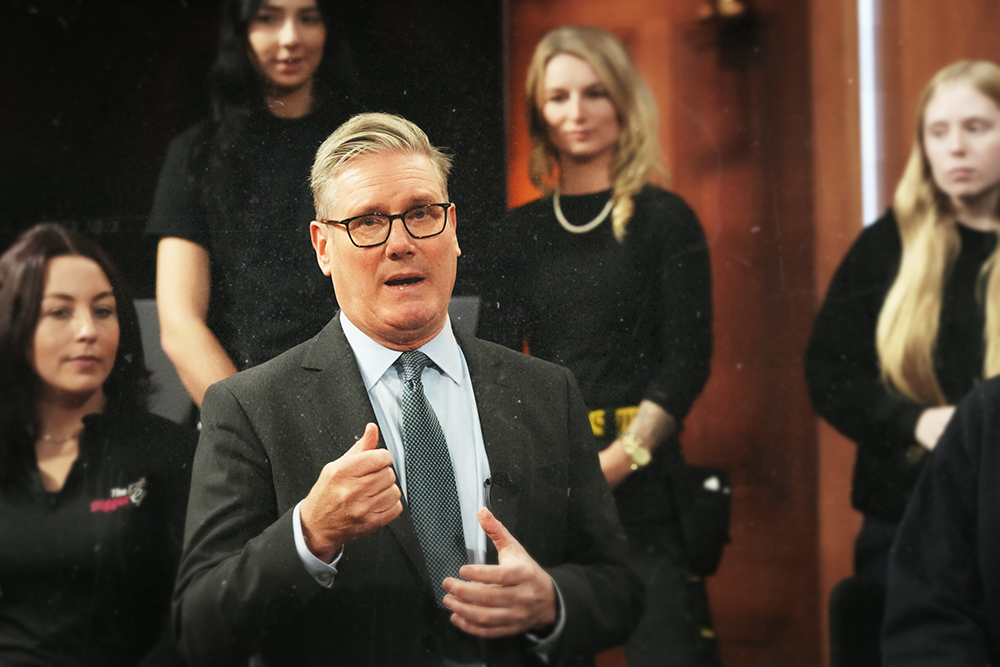President Javier Milei isn’t believed to have attended Sir Paul McCartney’s Buenos Aires concerts last weekend, but if he had, he would have heard thousands of Argentines belting out ‘Getting Better’.
Are things getting better for Argentina? There’s enough in the World Bank’s latest assessment to give Milei optimism. While his brutal austerity measures have caused the economy to shrink by 3.5 per cent in 2024, according to projections, GDP is also primed to grow by 5 per cent next year.
One consequence of Milei’s success has been a stark increase in poverty
Now the main concern for Milei – and South America’s great libertarian experiment – is whether he will still be around to reap the benefits. For the first time since he swept to electoral victory almost a year ago, there are signs that his popularity may be on the wane.
During the election campaign he promised to massively cut government spending, and he has been good to his word. Entire government departments have been closed down – most recently the department in charge of improving water quality – with responsibilities shifted elsewhere. Tens of thousands of workers have been made redundant as Argentina’s bloated public spending has been reigned in.
The goal has been to tame inflation – which had reached catastrophic levels with prices rising by 300 per cent annually – and these policies have, to his credit, been successful in achieving that. A poll of economists by Reuters this week suggested that monthly inflation fell to 3.5 per cent in September, which if confirmed would be the lowest figure for three years. Prices, which at one point were on course to quadruple over the course of the year, have in fact doubled – still a hefty burden for ordinary Argentines to bear, but a significant improvement.
One consequence of this success has been a stark increase in poverty. Figures from the official statistics agency showed that 53 per cent of the country was living in poverty in the first six months of this year – an increase which equates to 3.4 million people pushed into poverty in just six months. Seventy per cent of workers earn less than 550,000 pesos a month – roughly £430 – while pensions have been frozen, public works halted and welfare programmes cut.
Until recently, Milei had been riding high on his significant election win and his brash, take-no-prisoners public persona. A poll by the Torcuato Di Tella university in Buenos Aires showed a 15 per cent drop in support in September, the biggest fall since he took over. Another poll from Proyeccion, a consultancy firm, showed negative views on his government pushing just past the majority point to 50.7 per cent. The Di Tella poll suggested that trust in Milei’s government is lower than it was at this stage for his two predecessors, Alberto Fernández and Mauricio Macri.
It’s only fair to point out that the situation inherited by Milei was bad – and he was honest with the country that things would get worse before they got better. But this will matter little if the public becomes so disaffected that his fragile coalition in congress collapses. The Peronists, who have ruled Argentina for most of its years of democracy, who will be only too happy to whir their battle-hardened political machine into action at the slightest sign of a slip up.
Milei has been described as a ‘hyper-minority’ president. His party, La Libertad Avanza (LLA), was only formed in 2021 as an electoral alliance but has been established as an official nationwide party this year. This will allow it to compete at next year’s mid-term elections, which could be vital for Milei’s chances of seeing out his presidency.
Milei’s main legislative piece – the mammoth ‘Bases Law’ – only made it through congress after weeks of tense negotiations and Milei still relies on the support of Argentina’s other main right-wing party. LLA’s registration as a national party opens it up to massively increase its threadbare representation in the upper house of Argentine politics – but only if it can make it through another year. It is easier to impeach a president in Latin America than it is in the United States.
Despite Milei’s drop in support, impeachment does not seem a likely outcome for Milei. If, as the World Bank believes, the economy begins to grow again in 2025 and life for those who have been left destitute begins to improve, the President will hope to find himself in much calmer waters this time next year. Until then, he will want to give the public another message from Macca: here comes the sun.







Comments